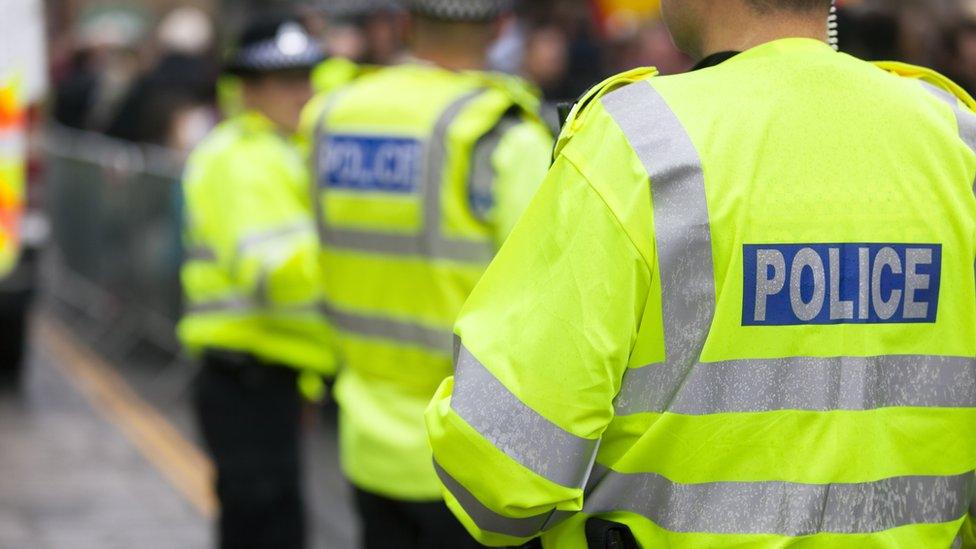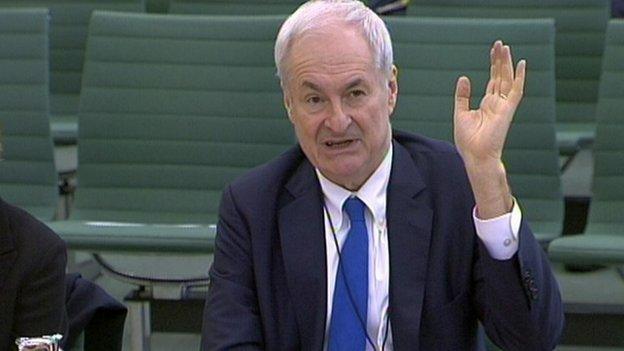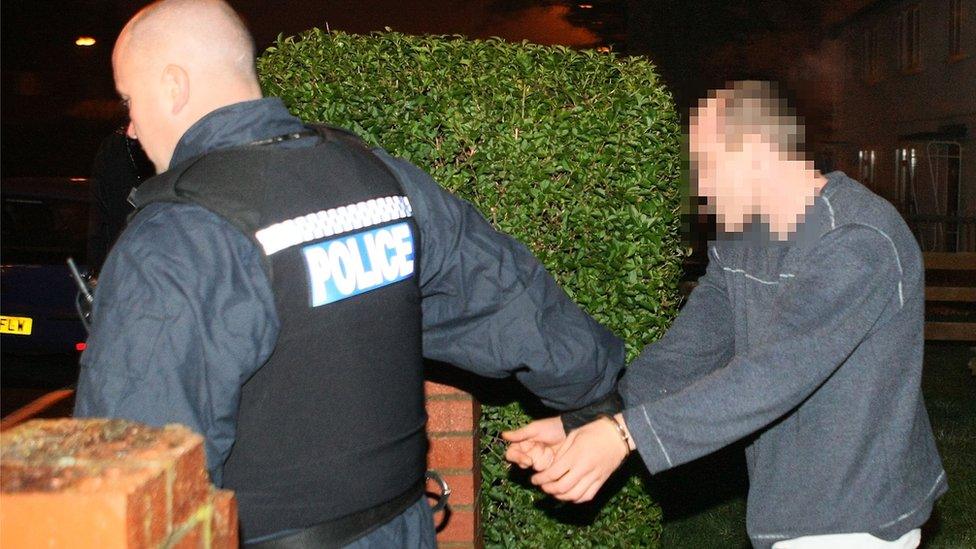Police bail time limit for suspects could be trebled
- Published

The length of time suspects could be bailed for is set to be trebled under government plans.
Under the proposals, officers will be told to impose bail conditions on suspects if there could be risks to victims, witnesses and the public.
Time limits to keep suspects under such a restriction could be raised from 28 days to 90.
The plans would reverse changes which restricted the use of police, or pre-charge, bail in England and Wales.
Home Secretary Priti Patel has set out the proposals, which would also strengthen "release under investigation" measures to ensure suspects who are not bailed by police have their cases reviewed.
The rules on pre-charge bail were changed under Theresa May's premiership less than three years ago after concerns from some suspects - including those arrested in Operation Yewtree into historical sexual abuse - that they were being placed under bail conditions for too long.
The change prompted concerns at the number of suspects being released under investigation (RUI) without any conditions.
The Home Office said it had opened a public consultation, external on the latest proposals on Wednesday, in "recognition that more needs to be done to ensure cases are dealt with effectively".
RUI was introduced by the Conservatives in April 2017 in a bid to limit the time someone spends on bail to 28 days - to try to cut the number of people facing restrictions for long periods of time without being charged.
It allows suspects to leave custody after an arrest without any restrictions for an unlimited period of time while inquiries continue, rather than having to comply with bail conditions including living at a certain address, not contacting particular people, or having to regularly visit a police station.
Some 322,250 cases involved suspects being released under investigation between April 2017 and October, according to figures obtained by BBC Newsnight.
Nearly 100,000 of those cases involved suspected violent criminals and sex offenders, including people suspected of offences such as rape and murder, the figures suggested.
In April, the Centre for Women's Justice made a super complaint to the police watchdog, accusing forces of failing to use protective measures in cases of violence against women.
In November, the Home Secretary announced a review of the regulations. Ms Patel said on Wednesday that the public consultation "forms a central part of this review, which will help (to) ensure the needs of victims are put first and the police can investigate crimes effectively and swiftly".
The plans under consultation include:
Extending the time limit for bail from 28 days to either 60 or 90 days
Telling police officers to use bail when there is a risk to victims, witnesses and the public
Making sure cases where suspects are released under investigation or interviewed voluntarily are reviewed
The government said it would also give "serious consideration" to the findings of a police watchdog report on the use of bail by forces, which is expected to be published in the summer.
The 28-day limit came into force after a number of high-profile cases where suspects were kept waiting for long periods of time before being told whether they would be charged.
In 2015, broadcaster Paul Gambaccini - who was once held on police bail for a year - backed the 28-day limit.
In 2013, Mr Gambaccini was arrested on suspicion of historical sexual abuse but the case against him was dropped.
- Published3 March 2015

- Published3 April 2017

- Published4 December 2019
